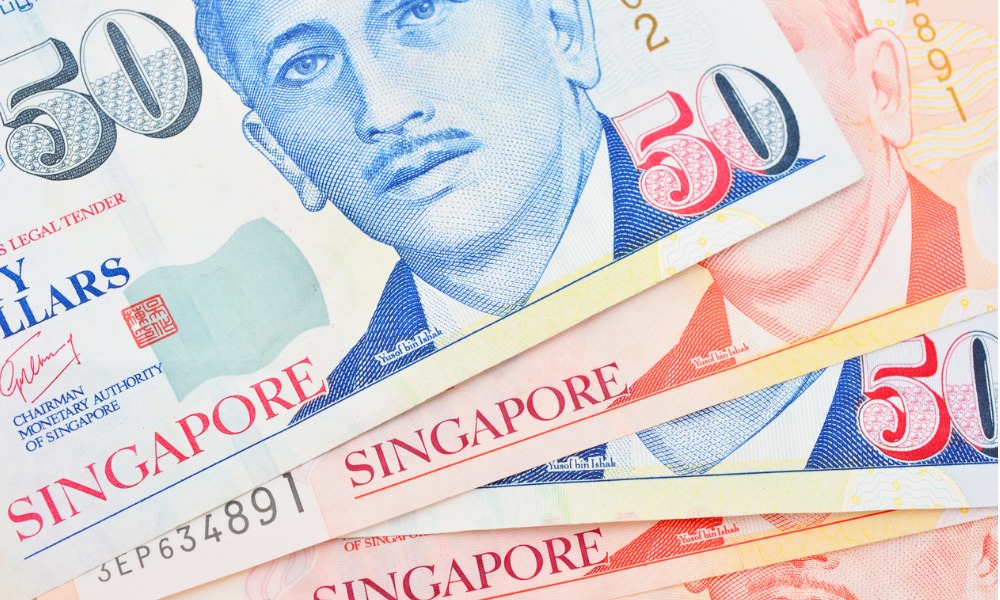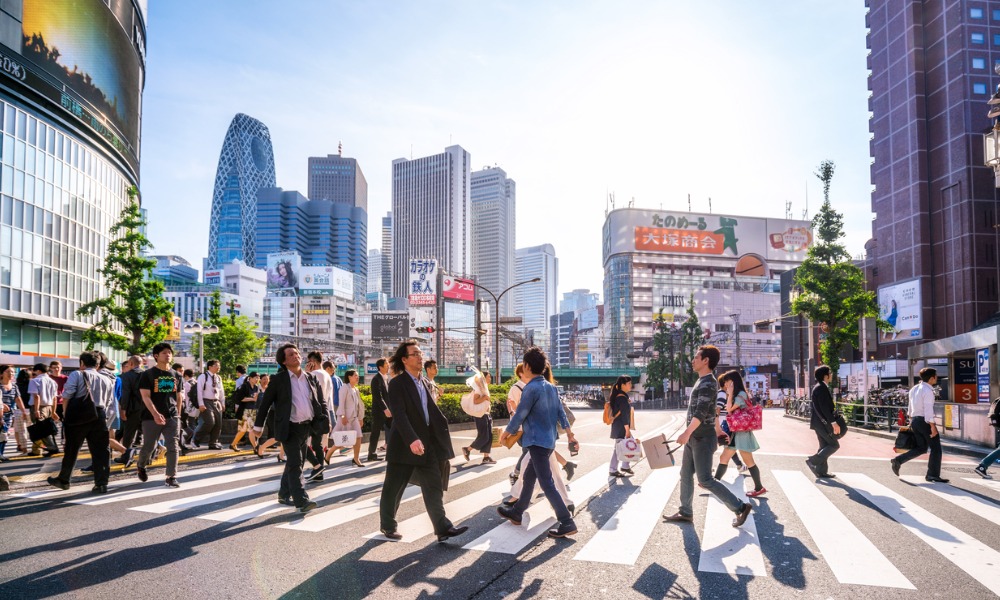HRD talks with the HR director for Aviva Singapore about her journey from archaeology to HR, creating value in the business, and letting people go in difficult situations
What made you decide to work in HR?
I actually studied to do history and wanted to be an archaeologist. At that point of time, it wasn’t that safe for girls to venture out into the remote areas in India. My parents thought it best I did something different so I decided to pursue a career in business management. I went to an institute which trained students to work in villages with farmers to help them develop their enterprises and take core management principles into our villages in India. While I did my management degree, I realised that everywhere it was people who were making a difference. So I thought to myself that if people were at the core of everything that we do, then being in HR enables me to influence, coach and develop them.
What is your job title and what brought you into this particular role?
I’m the HR director for Aviva Singapore. What got me to Singapore and this role was leading a dutiful life. I was based in India for a large part of my career. My husband moved to the US and I followed him. He then moved to Singapore and I followed him here. I was the HR director for Aviva in India. When I came to Singapore, I got a role in Aviva’s regional office at first. At that point of time, we were venturing into Indonesia and Vietnam, creating joint ventures there and I helped build HR capabilities in those two markets. I was then asked to take on a role in the Singapore business in HR and that’s where I am currently.
What would you say motivates or excites you the most in your role?
It’s the opportunity to co-create value for our business. I use this word very carefully – co-creation for me means partnering with the business and genuinely so. For instance, I can help coach people to reach their full potential. I enjoy sparking conversations where people may not realise how good they are just to show them they’re better, to push them along, to get them to think out of their comfort zone. It’s amazing when they come back to you and say, “Oh, I could never imagine that I could do this”.
What are the goals you most want to accomplish in your work?
Because of market trends and how quickly the socio-economic environment is changing, one of my key goals is to future-proof the capability of our organisation so we can become a game-changer in any area that we decide to work on. The second part is to build resilience and courage to deal with this kind of change. Because this change is fast-paced, it can be unnerving for a lot of people especially since Asia has been very, very stable for a long period of time. I was there in the US in 2008 when the financial crisis hit. It takes a lot of mettle to be in there and then to successfully come out as a professional especially when you’re leading your team. So now I’ve put that upon myself to help my organisation be prepared.
What’s next for you in your work? What are you looking forward to?
I want to develop the wellness proposition for our employees. I have this very strong belief that we can influence our employees to lead healthier lifestyles and bring about positive changes in the way they live. With change comes a lot of opportunities. Helping our people lead healthier lifestyles will mean they’re happy and more engaged. This will be a targeted initiative. It’s a really big step that ultimately leaves it up to individual choice. Mere incentives won’t change people’s lifestyles – it’s a personal decision.
What is your favourite aspect of the job? And what is your least favourite aspect?
My favourite aspect is to make a difference every single day and add value to the business. This could be as simple as getting to know our employees better. My least favourite aspect is having to let people go on account of non-performance and redundancy reasons. It’s difficult because in all situations, they lose their livelihoods regardless of the reason. I think the best method here is to be honest and straightforward. Just have a very simple conversation – be authentic. Once you’re authentic, the conversation becomes easier.
What’s the best piece of HR advice you’ve ever received?
One is that with courage, conviction and self-belief, nothing is impossible. The second is that often people work hard to solve problems so that all looks fine and do not highlight areas which are coming in their way of work, so as one of my managers told me, “Sometimes it’s good to show the pain”. Once you’re able to show the pain, the organisation can support you to eliminate roadblocks.
Do you have any key mentors who have influenced you? If yes, tell me about them.
I actually have mentors from different aspects of my life – my family members, my managers, my colleagues, my team even my neighbours. While talking about doing the right thing, I’ve learnt so much from those conversations. I’ve been very privileged. I’ve had many, many different people all offering advice for situations that I’ve had to deal with about what I should be doing and what I should not be doing.
I actually studied to do history and wanted to be an archaeologist. At that point of time, it wasn’t that safe for girls to venture out into the remote areas in India. My parents thought it best I did something different so I decided to pursue a career in business management. I went to an institute which trained students to work in villages with farmers to help them develop their enterprises and take core management principles into our villages in India. While I did my management degree, I realised that everywhere it was people who were making a difference. So I thought to myself that if people were at the core of everything that we do, then being in HR enables me to influence, coach and develop them.
What is your job title and what brought you into this particular role?
I’m the HR director for Aviva Singapore. What got me to Singapore and this role was leading a dutiful life. I was based in India for a large part of my career. My husband moved to the US and I followed him. He then moved to Singapore and I followed him here. I was the HR director for Aviva in India. When I came to Singapore, I got a role in Aviva’s regional office at first. At that point of time, we were venturing into Indonesia and Vietnam, creating joint ventures there and I helped build HR capabilities in those two markets. I was then asked to take on a role in the Singapore business in HR and that’s where I am currently.
What would you say motivates or excites you the most in your role?
It’s the opportunity to co-create value for our business. I use this word very carefully – co-creation for me means partnering with the business and genuinely so. For instance, I can help coach people to reach their full potential. I enjoy sparking conversations where people may not realise how good they are just to show them they’re better, to push them along, to get them to think out of their comfort zone. It’s amazing when they come back to you and say, “Oh, I could never imagine that I could do this”.
What are the goals you most want to accomplish in your work?
Because of market trends and how quickly the socio-economic environment is changing, one of my key goals is to future-proof the capability of our organisation so we can become a game-changer in any area that we decide to work on. The second part is to build resilience and courage to deal with this kind of change. Because this change is fast-paced, it can be unnerving for a lot of people especially since Asia has been very, very stable for a long period of time. I was there in the US in 2008 when the financial crisis hit. It takes a lot of mettle to be in there and then to successfully come out as a professional especially when you’re leading your team. So now I’ve put that upon myself to help my organisation be prepared.
What’s next for you in your work? What are you looking forward to?
I want to develop the wellness proposition for our employees. I have this very strong belief that we can influence our employees to lead healthier lifestyles and bring about positive changes in the way they live. With change comes a lot of opportunities. Helping our people lead healthier lifestyles will mean they’re happy and more engaged. This will be a targeted initiative. It’s a really big step that ultimately leaves it up to individual choice. Mere incentives won’t change people’s lifestyles – it’s a personal decision.
What is your favourite aspect of the job? And what is your least favourite aspect?
My favourite aspect is to make a difference every single day and add value to the business. This could be as simple as getting to know our employees better. My least favourite aspect is having to let people go on account of non-performance and redundancy reasons. It’s difficult because in all situations, they lose their livelihoods regardless of the reason. I think the best method here is to be honest and straightforward. Just have a very simple conversation – be authentic. Once you’re authentic, the conversation becomes easier.
What’s the best piece of HR advice you’ve ever received?
One is that with courage, conviction and self-belief, nothing is impossible. The second is that often people work hard to solve problems so that all looks fine and do not highlight areas which are coming in their way of work, so as one of my managers told me, “Sometimes it’s good to show the pain”. Once you’re able to show the pain, the organisation can support you to eliminate roadblocks.
Do you have any key mentors who have influenced you? If yes, tell me about them.
I actually have mentors from different aspects of my life – my family members, my managers, my colleagues, my team even my neighbours. While talking about doing the right thing, I’ve learnt so much from those conversations. I’ve been very privileged. I’ve had many, many different people all offering advice for situations that I’ve had to deal with about what I should be doing and what I should not be doing.





